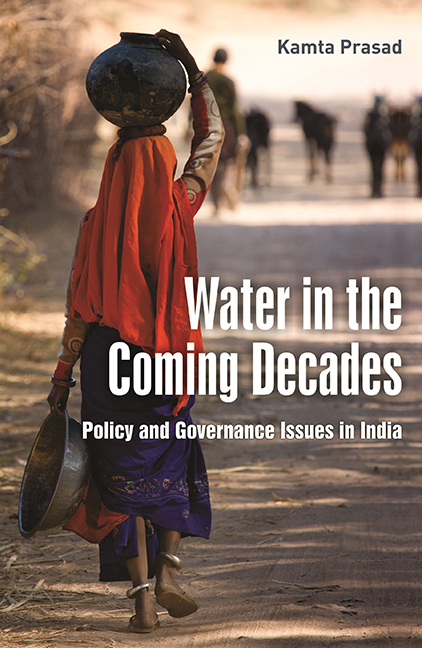Book contents
- Frontmatter
- Dedication
- Contents
- List of Tables
- List of Abbreviations
- Preface
- Acknowledgements
- Section I Overall Perspectives
- Section II Situational Analysis
- Section III Socio-economic, Institutional and Environmental Aspects
- Section IV Technological Options
- Section V Concluding Observations
- References
- Index
11 - Community Participation in Flood Management
Published online by Cambridge University Press: 13 July 2022
- Frontmatter
- Dedication
- Contents
- List of Tables
- List of Abbreviations
- Preface
- Acknowledgements
- Section I Overall Perspectives
- Section II Situational Analysis
- Section III Socio-economic, Institutional and Environmental Aspects
- Section IV Technological Options
- Section V Concluding Observations
- References
- Index
Summary
Community approach to flood management is an emerging concept. An assessment of its potential for India is provided in this chapter. After reviewing the present level of public participation, the chapter gives the outline of a proposed institutional framework for a community approach. Operational guidelines are also provided.
Introduction
The administrative system for flood management is similar to that of irrigation. Both of these are managed by the government through the same department in the Centre as well as in states. The recent introduction of participatory approach to management of irrigation in India has generated a similar interest in people's involvement in flood management also. The issues arising in this respect are examined in this chapter. The ideas discussed are exploratory in nature since, unlike irrigation, community involvement in flood management is yet to be introduced in India.
The discussion in this chapter is restricted to rural areas only. Firstly, in India, flood-prone rural areas are more extensive and have larger population than flood-prone urban areas. Secondly, a greater part of urban flood-prone areas, comprising cities and towns, have already been provided a reasonable degree of protection. It is mainly the rural population which has to face the prospect of living with floods for a long time. Thirdly, community orientation has traditionally been an integral part of rural life and culture which is not so pronounced in urban areas. Even then, guidelines suggested in this chapter for rural areas can be applied with some minor modifications to urban areas also.
The guidelines provided in this chapter were evolved after intensive interaction with flood-affected people and local officials in the three flood affected districts, one each in Assam, Bihar and West Bengal as a part of the WMO study conducted by the author during 2003 and 2004. The three districts were Cachar in Assam, Samastipur in Bihar and Murshidabad in West Bengal. Two villages from each district (i.e. a total of six villages) were selected for interaction with villagers. Thereafter, the guidelines were tested in actual flood situations in Tira Jatmalpur Panchayat in Kalyanpur block of Samastipur district in Bihar in 2004 and in Sinuara Panchayat of Hanumannagar block in Darbhanga district of Bihar in 2005.
- Type
- Chapter
- Information
- Publisher: Foundation BooksPrint publication year: 2014



